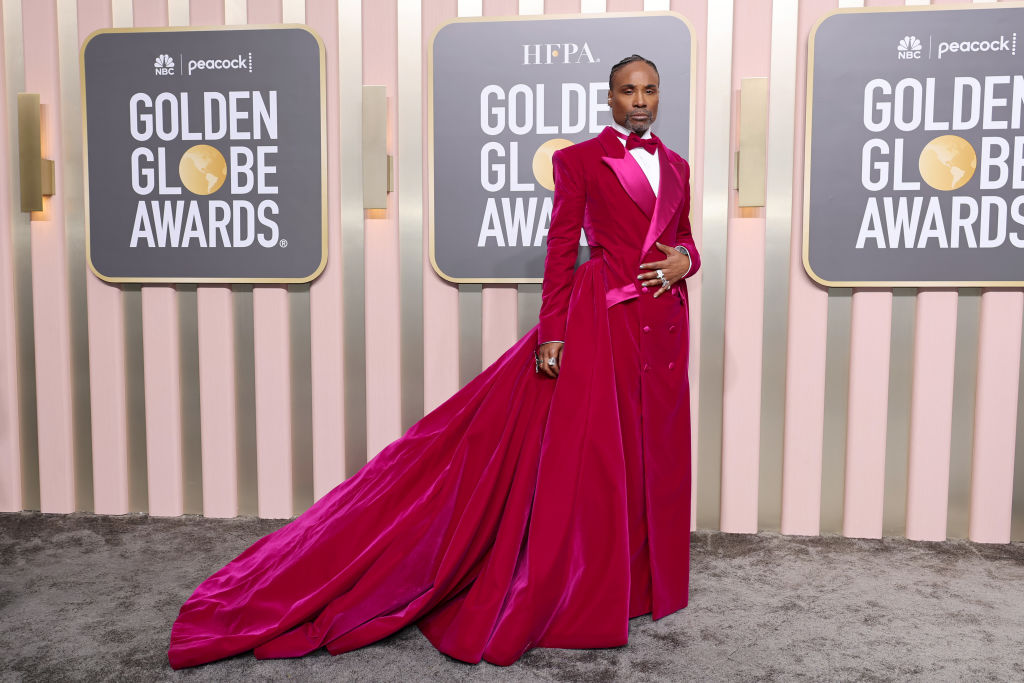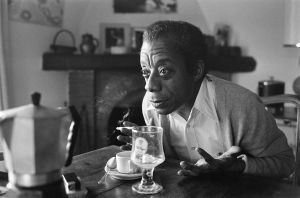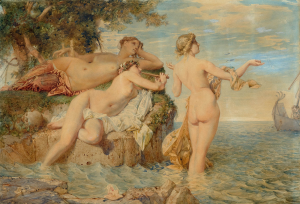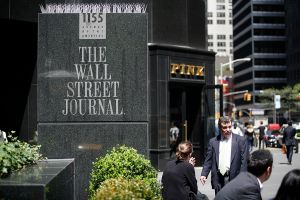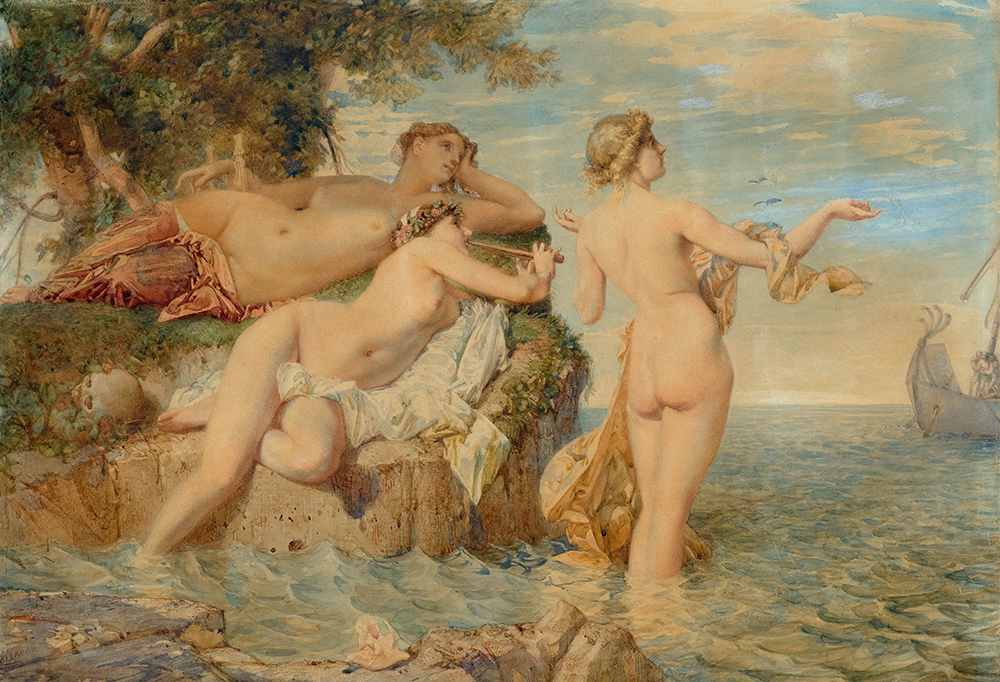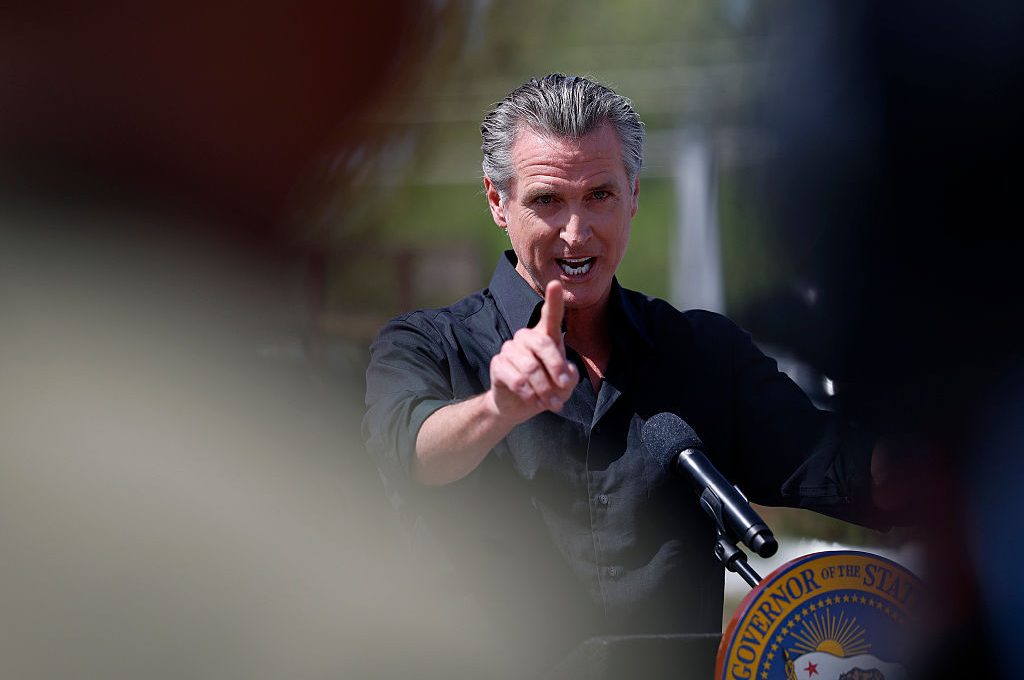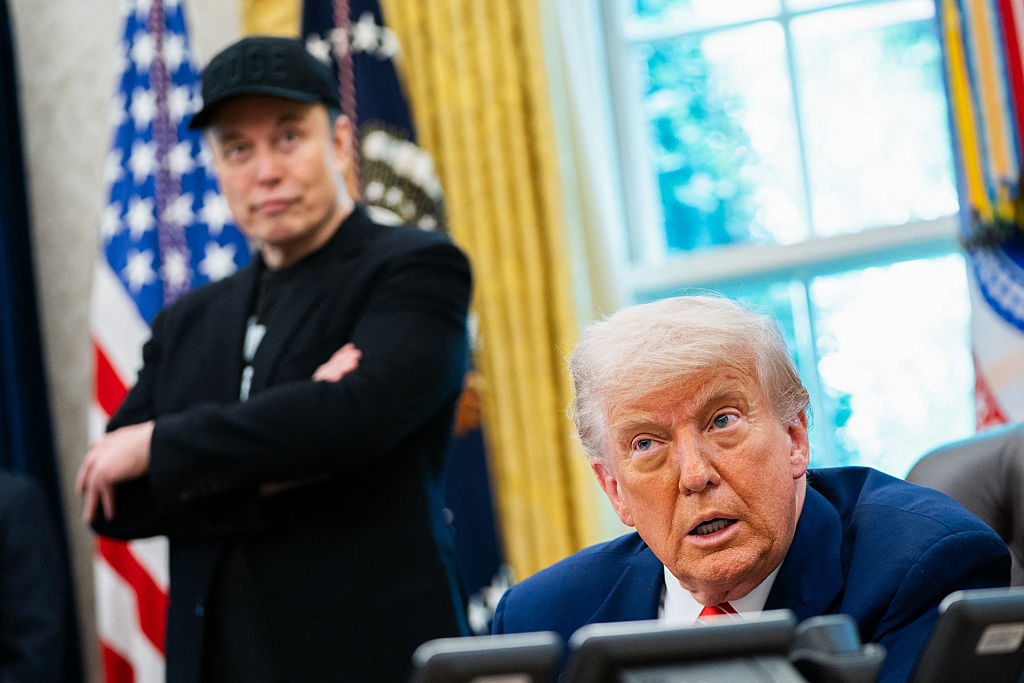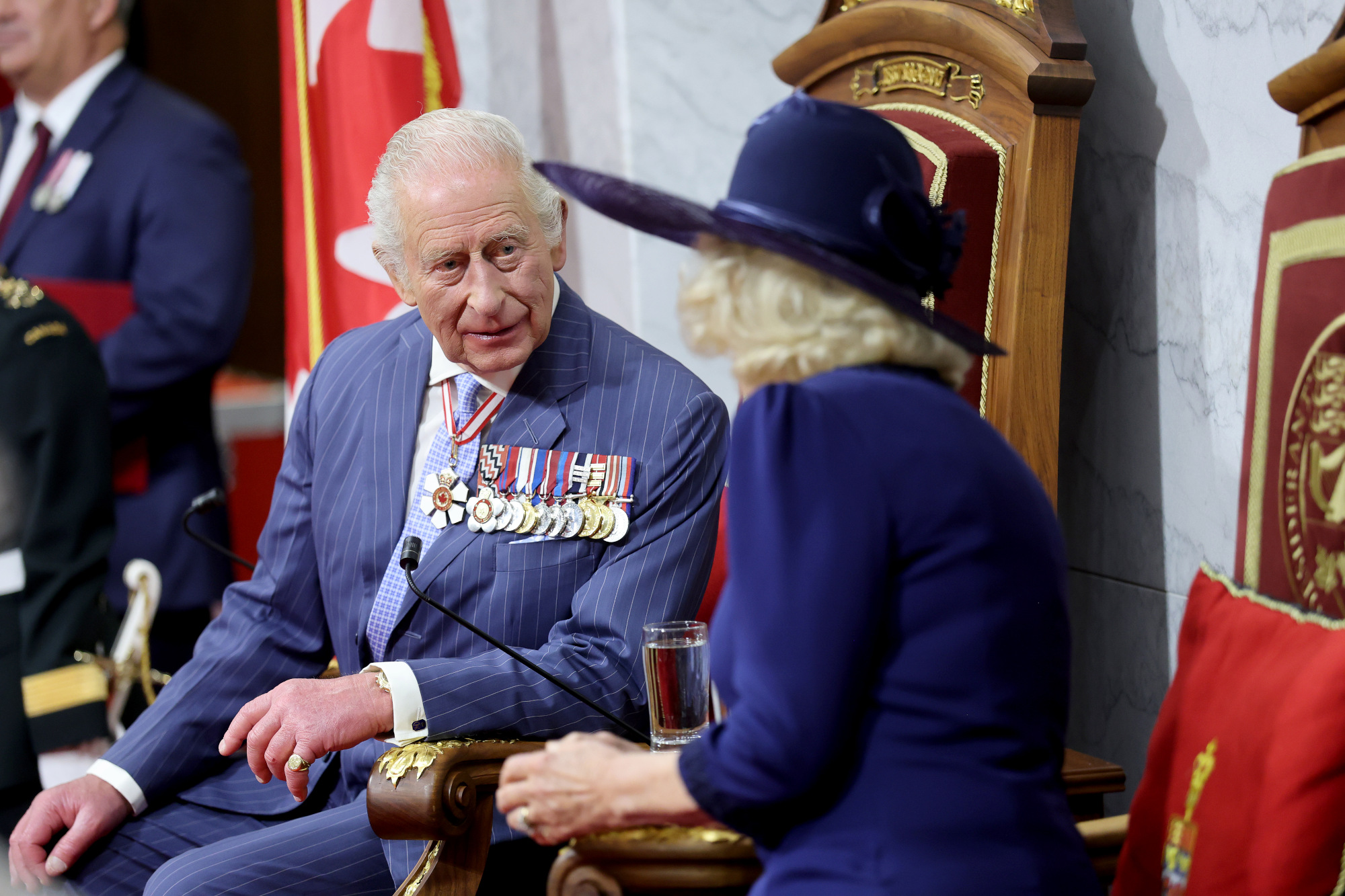No experience in my many decades on this planet felt more degrading than being repeatedly referred to as “intimidating” by my former boss. As far as I know, the affluent, influential white women that I used to work with at Condé Nast lost their right to refer to their black male employees in such racially laden language long before the death of George Floyd. Especially when I was merely asking my (mostly white and female) underlings to simply do their jobs.
I’m reminded of this charge every time I see a black man done up like a woman — which is seemingly all the time these days. Take Alex Newell and J. Harrison Ghee, who were awarded Best Actor statues at the Tony Awards in June, and both accepted them clad in colorful gowns and full makeup. Or Billy Porter, who donned platform heels and a high-collared, vaguely clerical dress to receive his star on the Hollywood Walk of Fame last December. Or look in the pages of Architectural Digest, which recently featured RuPaul on its cover and — during my time working there — profiled the homes of celebrity stylist Law Roach along with Christopher Griffin, also known as the Plant Kween. All black, all stridently positioned and presented as femme.
Don’t get me wrong. I am gay and African American and appreciate efforts to showcase the widest range of men like myself in popular media. The problem is that the only black men — particularly gay black men — now being showcased appear to be those who’ve conceded their masculinity.
To be clear, there is a long tradition of black men costuming themselves as women across screens large and small. Indeed, Tyler Perry — perhaps the most successful black culture creator of all time — first attained stardom as Madea, the smart-talking Aunt Jemima-like caricature who helped make him a billionaire. Eddie Murphy, Jamie Foxx and Martin Lawrence have also cross-dressed for Hollywood — as have Shawn and Marlon Wayans, whose 2004 cult hit White Chicks rendered them not merely as women, but as white women to boot.
But this most recent embrace of African-American gender ambiguity marks a worrisome evolution from the era of Murphy and Madea. This should come as little surprise. Back in 2007, Oscar-nominated African-American film director John Singleton was already making clear that he was “tired of all these black men in dresses,” going on to wonder, rather presciently, “how come nobody’s protesting that?”
Three years later, Dave Chappelle straight-up declared to Oprah Winfrey, “why all these brothers gotta wear a dress?” Fresh off his $50 million fuck-you to Tinseltown, Chappelle went on to describe himself as a “conspiracy theorist… connecting dots that maybe shouldn’t be connected.” Nearly fifteen years later, those dots — and the power dynamics they connect — have never been clearer.
From MSNBC to major fashion magazines, black women — propelled by the intersecting potency of #MeToo and BLM — now lead much of mainstream media. But this status shift has yet to be extended to black men. In fact, when I became head at Alexa, the New York Post’s lifestyle broadsheet, in 2016, I was the only black male editor-in-chief at a major publication in the entire nation. There are still no others.
Things appeared to be slightly better in Britain, where Edward Enninful was appointed editor-in-chief of British Vogue in 2017. Unlike me — supremely skeptical of all things “woke” — Enninful proved masterful at navigating the ideological zeitgeist now required to succeed as a top corporate creative. He aggressively adopted the race- and gender-first mantras currently powering pop culture, even going as far as to suggest that British Vogue become “gender-neutral.” Yet Enninful was ousted in early June, a casualty of a losing power struggle with his American counterpart, Anna Wintour — the white female boss of my former white female boss with the nasty habit of calling me “intimidating.”
Coincidence, perhaps — but Enninful’s demise can’t help but remind me of Chappelle’s theorizing from so long ago. Women such as Wintour remain unrivaled gatekeepers to rarified worlds of elitism and privilege that are rapidly eroding all around them. Indeed, Wintour is credited with overhauling the sartorial standards of awards shows like the Tonys, where Newell and Ghee recently triumphed so glamorously.
Yet while they front as champions of diversity, these women actually promote a limited view of inclusiveness that reinforces the worst stereotypes of black men — scary, uncivilized, minstrel-like, dangerous. Rather than remedy such outdated views with truly comprehensive displays of what black manhood can be, they erase and neuter them instead. And there’s no better way to do so than to put these men in a dress.
As evidenced by Wintour’s now infamous banishing of the late Vogue editor André Leon Talley — who actually preferred elaborate capes rather than dresses — in the eyes of many powerful white women, powerful black men are little more than dispensable and disposable. Widely regarded as an inevitable successor to Wintour herself, Enninful is now making do with lucrative commercial ventures while staying on at Condé Nast in a hastily-manufactured “global advisory position.”
Meanwhile, as nearly 60 percent of black kids grow up without fathers, this year’s Pride month offered endless additional examples of dudes done up like ladies. Again: representation is a good thing — it matters. But most black men — gay or straight — bear little resemblance to Billy Porter in full make up. Sadly, with black men mostly absent from media C-suites, this is unlikely to change anytime soon — just as women like Wintour have probably always wanted it.
This article was originally published in The Spectator’s August 2023 World edition.



